⭐S.T.A.R. ⭐During lessons, I will focus on 4️⃣ areas when guiding students on how to write a good response for structured questions using the ⭐S.T.A.R.⭐ technique. S - SubstituteWhen starting an answer, students tend to rearrange the question stem or summarise the question instead of answering it. Substitute words in question stem using more specific terms. For example, when the question mentioned 'tarnished', we can substitute it with 'oxidised'. If the question mentioned 'the gas', substitute it with the name of the gas if it is possible to tell. T - ✂️Take away✂️Remove all irrelevant information. DO NOT repeat words or phrases just to lengthen the answer. Any word written MUST value-add to your answer. For example, when question asks for 'Which electrode is the cathode? Explain your answer.', you do not have to write 'The electrode which is the cathode is X. This is because ....' . Instead, just go straight to the point. 'X. Reduction happens at X as ... ' This will save you time⌛ and line space to give a better explanation. A - ➕Add➕Add all relevant details from the data📊 given. Remember to quote the data and also value-add to the data. Expand your answers with relevant concepts to clarify how that specific data answers the question. For example, instead of saying 'Ethanol's boiling point is low and hence volatile.', we can expand our answer by saying 'Ethanol has a low boiling point of 78°C which is near the room temperature of 25°C. Hence, it is volatile and evaporates easily. R - RearrangeThe sequence of your answer 📃is important. It makes it much easier for the marker to award marks☑️ if your answer is easy to read. For 'State and explain', 'Describe and explain', 'Explain using an equation' types of questions, it will be beneficial to 'State', 'Describe' and 'write your equation' first before explaining your rationale. Many students start by explaining and forget to link back to the question at the end. In conclusion ...To write ✍🏻a good answer, students have to learn how to break down the question and be clear about the demands of the question. Many students just write what comes to the mind💭 at that moment. Instead, with practice, all these steps will come naturally when students plan their answers in their minds before writing it down in a succinct manner.
1. Tackle challenging tasks firstComplete your most challenging work when your brain is fresh, either in the morning or afternoon. Note that your exams will be conducted during this period. Train your brain to work hard during the exam time-frame! 2. Keep distractions awayIf you keep getting distracted by your phone, put your phone far away from you or in a separate room. STUDY TIP! You can install apps that prevent you from using your phone such as Study Bunny. (Go check this out, it’s super cute!) https://www.superbyte.site/studybunny 3. Stop multi-taskingIt's common for students to try to work on multiple tasks especially when you have lots to do, but it actually makes you less productive. Get things done more effectively and efficiently by focusing on one task at a time. STUDY TIP! There’s a study timer on Study Bunny! Make use of it. 4. Create a reasonable to-do list.If you have a long to-do list, it might deter you from completing your tasks as you see it as a lot of work or if you did not manage to complete your to-do list, you may feel unproductive and unmotivated. Thus, it is best to have a list of 3 to 5 tasks per day, depending on how tedious the work is.
STUDY TIP! There’s a to-do list on Study Bunny too! 1 month before ...In order to score well for the prelim exam, you have to apply your knowledge and be able to explain concepts. This can be done by doing practice papers using the ten-year-series. After completing the papers: - Clarify the learning gaps as soon as possible. - Understand why you got the answers wrong. - Be 100% sure what the keywords/phrases are to score full marks. 1 week before ...A week before the paper, it is best to review the questions that were wrong and check if there are any “knowledge leakage”. This can be done by re-doing the same questions again “mentally”. This helps to strengthen the understanding and leaves a deeper impression when you come across similar questions during the prelims. 1 day before ...You should be prepared and be mentally ready for the paper the next day. It is best to focus more on memory work and content such as definitions. There are many recall questions that are easy to score. You should have already done a lot of practice paper. It is a good practice to look through questions you have answered wrongly as a final reminder before the actual paper. If time allows, it would help if you can cover the answers write answers in point form in an exercise book. In short ...This method of studying requires at least 1 month of preparation and cannot be done within 1 day or 1 week before the exam.
Fundamentally, to do well for Chemistry, there are 3 components:
Content knowledge can be done as a last-minute revision. However, the ability to apply and explain has to be trained over some time. There is no short-cut to do well. Know your content, apply your knowledge and brush up your answering technique. Don’t stop learning even after prelims. Try your best to have minimal “content leakage” for this last lap towards your O levels! Is your child feeling overwhelmed and intimidated by upper secondary Chemistry? Are you finding ways to support and encourage them to make learning less stressful?
As parents, the last thing we want is for our children to feel demoralised and resistant towards learning. From Sec 4 onwards, many weaker students will start to get left behind by their peers... Based on my years of experience, students need to have a strong headstart to help them understand concepts better, with less misconceptions. This will give them the confidence they need to apply concepts in higher order thinking questions. It is important for Sec 3 students to start attempting the Chemistry topical Ten Year Series which is a compilation of past examination papers from the last ten years. Although the Sec 3s this year have a slight change in the syllabus and examination format, most of the questions are still relevant and useful for practice. It will be best to find an experience tutor to adopt questions from the TYS and modify them to match the latest syllabus. Usually, I will use these papers to guide my students in practicing and preparing for their weighted assessments. Students will learn annotation skills when I think aloud in front of them. It is also important for Sec 3s to identify areas where they need help on and not wait till it’s too late. Learning Chemistry goes beyond merely memorising concepts. It is crucial to make sure your child can explain the underlying concepts and theories to make him understand the topics thoroughly. Developing a deep understanding of every topic starting from Sec 3 is important to have a good headstart. With proper guidance and support, your child should slowly get to love Chemistry and at the same time increase his confidence in his abilities. 6 Steps to Tackle ‘O’ Level Pure Chemistry Paper 2One of my students pointed out that I didn't update my blog for the entire 2022! It had been a really busy 2022. The days passed too fast and I didn't have time to share my thoughts in this blog. It has always been my passion to share study tips, and useful advice with my students. It's so much more convenient to just share my thoughts through Whatsapp with my current students. To make up for my 'absence', I shall share 6 steps to tackle the Structured Questions in Paper 2. This is also relevant for students taking Combine Chemistry as the skills required are similar. Step 1: Know your 'enemy' well.Paper 2 of the ‘O’ Level Chemistry Paper carries 80 marks and accounts for 50% of the overall ‘O’ Level Chemistry grade. Since the demands of Paper 2 are high and the given duration for you to complete the paper is relatively short, you have to strategise in order to manage this paper. Time: 1hr 45min Section A: Consists of 7 to 9 compulsory structured questions, each with several parts Section B: Consists of 3 questions
Do note that for students taking the O level exams in 2024, there will be a slight change in the format. Step 2: Know the Periodic Table better than your best friend.The Periodic Table has a wealth of information that can help you solve questions. Some information such as proton number, mass number, group number and period number can be obtained directly from the Periodic Table. Tip: For all my students, they will get a personalised Periodic Table from the 1st session. Step 3: Understand the links between all topicsPaper 2 questions require you to use knowledge from more than one specific topic. Hence, you should be able to link several concepts across different topics to answer questions. A good way to prepare for such questions would be to have strong content knowledge in foundational topics. Key foundational topics to master by Sec 3 are:
Normally, teachers like to set exam questions with a mix of topics. For example:
Step 4: Study Smart. Know your content well.The time crunch in an exam situation means that the more quickly you can recall knowledge, the better you can focus on applying their knowledge to application questions. These basic concepts can help you deduce or predict other scientific information that you will need to solve questions. One way to do so is to commit certain basic scientific information to memory. *Read on to get some tips on how to do it* Step 5: Learn to look for clues like Sherlock HolmesIdentify the Directive Word Questions which begin with the words, “define”, “state”, “describe”, “explain” or “outline” will test factual knowledge and understanding. Such questions will require you to recall and explain specific concepts. Questions which ask you to “describe” will require them to use results or observations from the question in their answers. On the other hand, questions which ask you to “explain” will require them to use scientific concepts to back up the observations you pen in their answers. Identify the Tested Topic(s) You should identify the topic(s) and/or concept(s) tested in a question by looking out for key words. For example, such key words or phrases may include “rate of reaction” or “displacement reaction”. You should include related key words/ phrases in their answers. Detect Extended Questions In the case of questions which are split into parts, you must ensure that your answers for subsequent parts are consistent with earlier parts. Some key words/phrases you may look out for to identify such questions are “Use your answer from ...” or “Based on your observations from ...” Step 6: Answer with precisionQuestions which involve a novel set-up or application will require you to apply what you have learnt. Additional information may be provided by the question if advanced concepts are being introduced. Such questions tend to be longer because a lot of information and/or data is provided. Questions may begin with the following words: “predict”, “suggest”, “calculate” or “determine”. Such higher-order questions require you to study the given trends and to predict any changes based on the variable changed. For questions which ask you to “suggest” an outcome, you can give a relevant or plausible answer so long as the suggestion is based on facts. You should provide a full answer complete with elaboration. You may choose to craft you answer in a chronological manner (step-by-step) or to use the “cause and effect” format which lists a cause and explains the resulting effect. In order to ensure that your answer is relevant and accurate, you are encouraged to use named examples within your answer. Bonus Tip 1: Mrs Lim's 3C MethodWhen structuring answers for Paper 2, use the ‘3 Cs’ Method. It is a systematic approach that helps you to provide accurate and precise answers. All my students are trained to use this method. CLAIM: Directly answer the main question. CLUE: Quote the given information from the question (which could include numerical values, graphs, tables, diagrams, etc.). CONCEPT: State the appropriate concepts used to explain the contextual clues given in the question. Bonus Tip 2: Memory TechniquesOver the years of teaching, I realise that one of the common challenges that students have is that they find it hard to commit what they have studied into their long-term memory. And this affects their performance during the exam. So, I'd like to share a few simple techniques that you can adopt, to help you improve your memory work. Avoid Cramming Studying materials over a number of sessions gives the you the time to adequately process information. Students who study regularly remember the material far better than those who do all of their studying in one marathon session. You will realise that during our tuition session, I will always try to focus on certain main concepts and not cram a whole chapter. Organisation Information is organized in our memory in related clusters. Try grouping similar concepts and terms together, or make an outline of your school or tuition notes to help group related concepts using tables, listing method etc. Use highlighters or pens in different colors to group related ideas in written study materials. During tuition, you will realise that I will always try to summarise what we’ve learnt in our precious notebook. Utilize Mnemonic Mnemonic is a technique often used by students to aid in recall. For example, students can associate a term they need to remember with a common item that you are very familiar with. The best mnemonics are those that utilize positive imagery, humor, or novelty. Create rhymes, songs, or jokes to help remember a specific segment of information. I always try to tell stories, “jokes” to help you remember certain concepts. Remember my blast furnace story? What about piper piper in fuels? And what did zebra say to goat? (Only my students will understand these questions!) Hope you find these useful! Have a wonderful 2023!
What are the skills that your child should work on this holiday to do well for Chemistry?1) Note-taking skillsMost students listen passively to the teacher throughout the lesson, assuming that they have understood everything the teacher said. From my experience questioning students about what they have learnt in school, many would have forgotten most of what was taught in class. This includes students who take pride in their studies. By jotting down points and annotating school notes, it makes it easier to recall and remember the important concepts taught during class. 2) Reviewing skillsUse the annotated school notes to help you recall and revise daily. You can add in more information, highlight the important concepts, colour code all key phrases and put a “?” near concepts that you are unsure of to clarify with your tutor during the next tuition session. Reviewing DOES NOT mean rewriting of notes. This is the most time-consuming way to study and does not help to reinforce one’s understanding of concepts. However, you can reorganize the concepts using tables or flowcharts so that you are actively recalling concepts during the review stage. 3) Application skillsMany students spend most of their study time memorising definitions and concepts. This may help to pass the exam but it is insufficient to do well as application skills must be trained. To do well, you must be able to understand the requirement of the question and know which concept to “pull and plug” into the answer. Active retrieval of concepts from memory helps to retain important concepts in the memory space for a longer time as you repetitively recall and apply the same concepts in different context. It is also crucial to know the right keywords and phrases to apply using template answers to score full marks. As you practise questions, you gain experience and will slowly be able to identify the common types of frequently asked questions and formula for each topic. Always check your answer with the model answers given by your school teacher or tutor. Do not use the model answers from the publishers as they are often not written in the appropriate examination answering style. 4) Learning from mistakesIt is important to learn from mistakes and avoid making the same mistakes in the exams. Do not feel discouraged when you make mistakes while doing school assignments or practising the ten-year-series. If you are not making mistakes, the difficulty of the questions is not pitched at the right level and you are not learning.
Many tutors face the difficulty of helping students improve as they see all students as similar student type. In this blog post, I will share 4 types of challenges that my students usually face. Challenge 1: Student A doesn't see the purpose in studying Chemistry and doesn't believe that he has the ability to learn. Response: I explained the value of learning to Student A and also increased the student's ownership of learning by allowing him to dictate how much homework he gets. Whenever he shares about his difficulty in learning, I will pause and listen to help me analyse his weakness in learning. Slowly, Student A started to change his mental mindset and that's the start of seeing improvement in his Chemistry grades. Challenge 2: Student B didn't do well in Sec 3 end-of-year exam. She has insufficient prior knowledge and prerequisite skills needed for mastery of new content for Sec 4. Response: I used bite-sized assessments as a platform for discussion to teach concepts using commonly tested exam questions. I also provided the key phrases and templates needed to gain scientific vocabulary in the shortest amount of time. With the correct focus, Student B managed to catch up and follow the lessons taught in school. Challenge 3: Student C has misconceptions about many topics as he was taught inaccurate information. Response: I will jot down his misconceptions in a notebook and ask him to justify his belief. After the discussion, the student will rephrase the concept below the original misconception. This allowed Student C to revisit the misconception and relearn the correct concept. Challenge 4: Student D doesn't have any learning/studying strategies/exam techniques. She will only do practice questions right before her tests. Response: I will teach study skills which have proven themselves to be effective. During lesson, I will demonstrate thinking aloud skills, do retrieval practice of information and also stress the importance of spaced learning. I will also share the common wrong studying methods made by most students. My slots for 2021 is currently full. Do contact me for a discussion if your child is keen to learn with me from November/Dec 2021 onwards to prepare for 2022. Thanks for reading! Now that you have gotten back your papers, what's next?
1. Wrong Direction ErrorType of error: Wrong direction error occurs when you misunderstood the direction of the question and do the question with the wrong topic, concept and keywords in mind. Problem caused: This error costs the most marks and wastes the most time. To avoid this type of error: Read the question at least twice, underlining important keywords before planning the answer. 2. Careless MistakeType of error: A careless mistake can be corrected automatically upon checking. E.g. missing keywords/phrases/copying the wrong value. Problem caused: Many careless mistakes throughout the exam paper will cause the grade scored to not reflect the student's true potential. To avoid this type of error: Read the answer once carefully before moving on to the next question. 3. MisconceptionsType of error: Misconceptions arise when students do not understand the principles required to work the problem. Problem caused: This type of error is the most serious mistake made as the student have not learnt the correct concepts in the first place. To avoid this type of error: An experience tutor will be necessary to bridge the gap. Relearning concepts will be crucial. 4. Application ErrorType of error: This happens when you know the concept but cannot apply it to the problem. Problem caused: Majority of the questions especially in Pure Chemistry are application questions. Not knowing the process skills will cause students to be unable to attempt the entire question as questions may be related to one another. To avoid this type of error: You must practise a wide variety of questions (not quantity) to know all the tips and tricks related to higher order thinking questions. Once again, having a tutor may be an option to help save time. 5. Test Procedure ErrorsType of error:
These are mistakes made due to way the student takes exam. It is affected by their own personalities and mindsets. Problem caused/To avoid this type of error:
Is your child feeling confident/nervous/overwhelmed/lost about the upcoming prelims? No matter what they are feeling right now, there is still time for preparation. 1. PLAN
REVIEWING is very crucial for quick improvement. 2. UTILIZE MEMORY TECHNIQUESMany students face the problem of being unable to recall the information as most teachers do not focus on this. They will say “must remember this!” or “Go memorise this!” without telling the students how. For my students, I will always teach them HOW to memorise/remember certain concepts by condensing the huge amount of information in a way that is easy to remember. Having a good memory is super important in order to just PASS the exam! 3. PREPARE CHEAT SHEETS
The most traditional way of recalling using just a blank piece of paper is the most effective. For my students, I will prepare blank tables / flowcharts / answer templates so that they can 'fill in the blanks' to test if they have remembered the concepts with accuracy. |
Mrs Lim
A Chem-Addict passionate about teaching and learning Chemistry. Archives
February 2023
Categories |
- Home
- More Information
- Contact Me
- Blog
-
FREE 5-MIN Notes
- 1. Experimental Techniques
- 2. Methods of Purification
- 3. Separation Techniques
- 4. Qualitative Analysis
- 5. Kinetic Particle Theory
- 6. Atomic Structure
- 7. Elements, Compounds, Mixtures
- 8. Ionic Bonding
- 9. Covalent Bonding
- 10. Mole Concept
- 11. Electrolysis
- 12. Energy Changes
- 13. Speed of Reaction
- 14. Redox
- 15. Acids and Bases
- 16. Salts
- 17. Ammonia
- 18. Periodic Table
- 19. Metals
- 20. Air
- 21. Fuels
- 22. Organic Chemistry
- 23. Macromolecules
- Free Printables





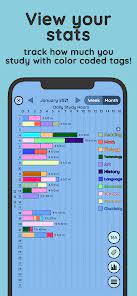

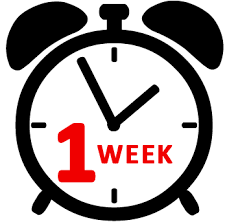


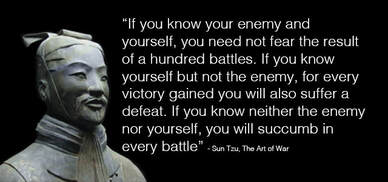


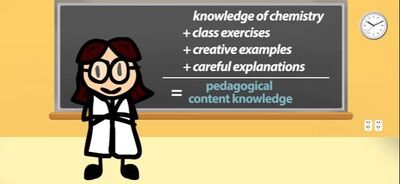

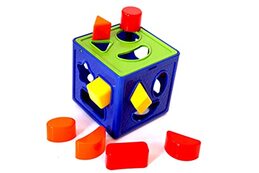
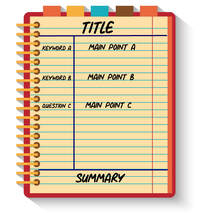
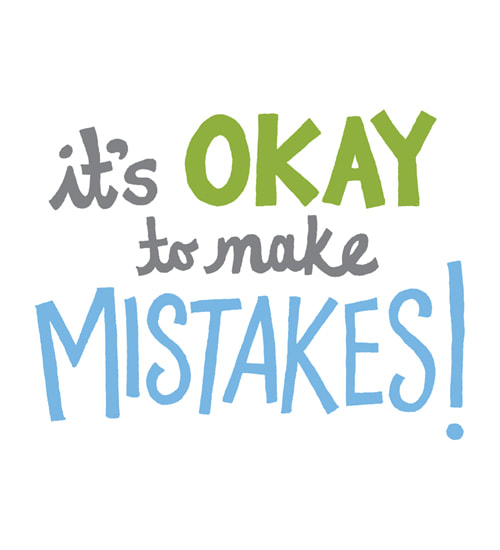
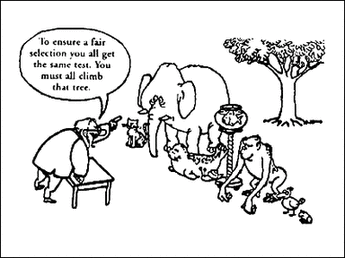
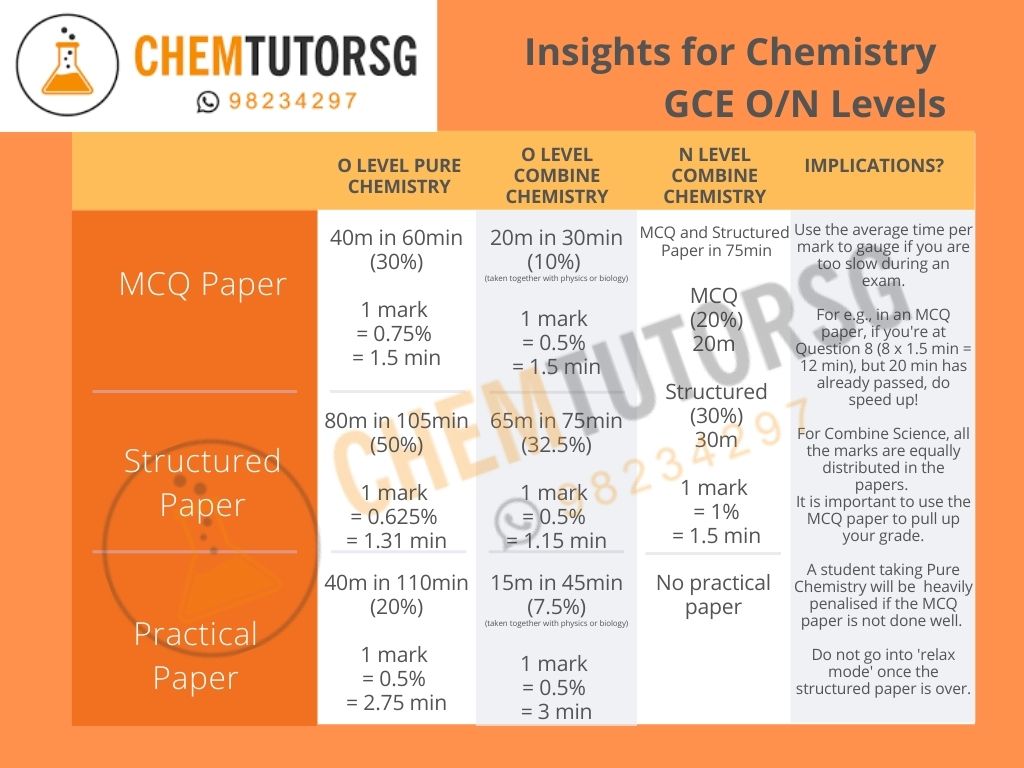
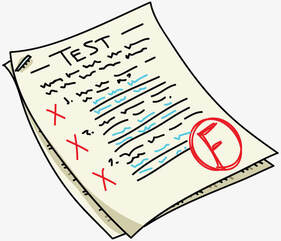

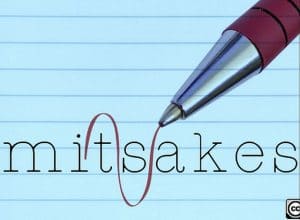

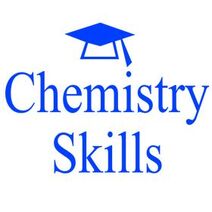

 RSS Feed
RSS Feed
